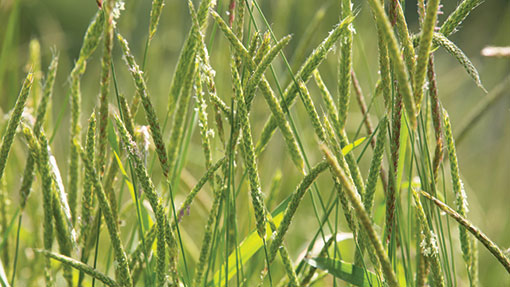Growing blackgrass at Little Gransden

John Jefferies has had an excellent harvest at Fullers Hill Farm, Little Gransden, Cambridgeshire, with winter wheat yielding well and producing good quality.
“We finished cutting on 13 August – it would have been five days earlier if it hadn’t have been for a downpour of rain,” he said.
With 80% of his winter wheat grown for milling, Cordiale was the star performer of the year, although both Cordiale and Solstice tested at between 12% and 12.5% protein.
“The Cordiale was a second wheat and averaged 10.72t/ha, which was very satisfying,” said Mr Jefferies. “We’ve had a run of bad luck over the past two years, so it’s been a breath of fresh air.”
Bushel weight was also outstanding at 84-85kg/hl. “You could feel it was good when you loaded it.”
See also: Upload your harvest photos to our Harvest Highlights gallery.
Solstice first wheat averaged 10.84t/ha, which was equally pleasing – and all wheat came in below 14% moisture.
Both Kielder and Croft were grown for seed, with Kielder the top yielder for the farm at 11.48t/ha, and with a bushel weight of 76kg/hl. Croft averaged 10.16t/ha – the lowest yielding on the farm.
“Considering the conditions it was established in, it’s unsurprising the yield was the lowest of the four varieties,” said Mr Jefferies.
“It was put in during the third week of October and conditions were so dreadful that one third of the seed was sat on top of the soil.”
Before starting drilling winter wheat, Mr Jefferies was now busy trying to grow blackgrass. “We’re so good at growing it, we need to learn more about it.
“It’s such a huge problem, we’re sampling various means of controlling it across different parts if the farm,” he said.
“It’s essential that all farmers take the time to really stand back and look at what we’re dealing with.”

